India’s Jewish communities have a rich history with a microscopic population scattered across the country. Filmmaker Rohan Sabharwal explores Cochin’s Jews in the documentary, Where The Heart Is
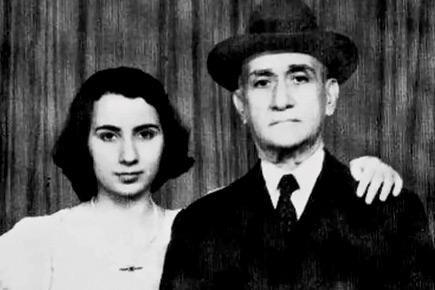
A dated photo of a Cochin Jewish man and his daughter
![]() Q. How were you drawn to the Jewish community?
Q. How were you drawn to the Jewish community?
A. It’s been over a decade that I have been interested in the Jewish communities in India. There is more than one, and each has a unique experience and history, settled across India, from Mumbai and Surat, to Kolkata, Manipur, Cochin and Andhra Pradesh. I did a fair bit of reading and research on the Bene Israeli Jews closer home, while I was here in Mumbai. Prior to that, I remember meeting a Jewish friend of a college mate (nearly 15 years ago) and it blew my mind. I had never heard of this community before or even knew of the existence of Indian Jews. In fact, as I speak about this film today, many are still unaware of the Jewish communities of India. But when you take certain names, for example, David Sassoon, it rings a bell. Sassoon’s contributions have even been towards the Gateway of India and he donated his old residence to the Parsi Trust, which we know today as Masina Hospital in Byculla.
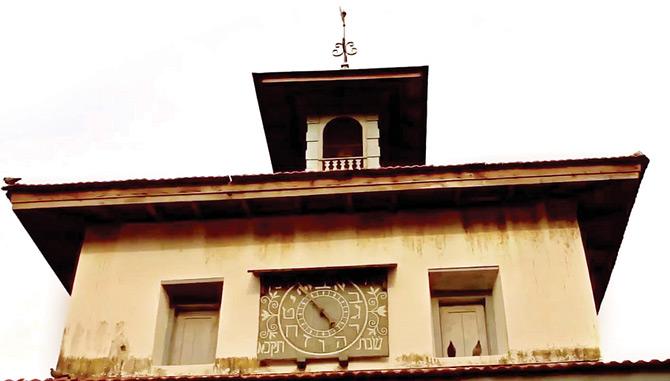
The Paradesi Synagogue in Jew town, Mattancherry, Cochin.
ADVERTISEMENT
Q. Why did you choose the Jews of Cochin film?
A. I had expressed interest in filming a documentary but I had no starting point, so the project lay dormant for many years until one day, Mathew Antony, an alumnus from my boarding school, read about it on my Wikipedia page. Mathew is the grandson of a famous Jewish Nationalist in Cochin, Abraham Barak (or AB) Salem. He suggested that I start with a film on the Cochin community. He had a lot of reference material and was close to the remaining members.
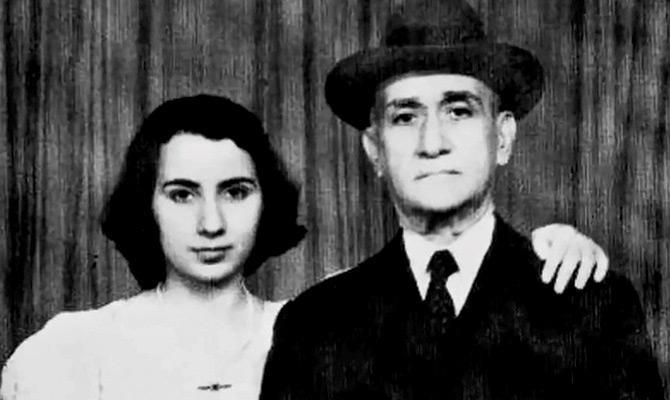
A dated photo of a Cochin Jewish man and his daughter
I, of course, jumped at the opportunity. There are various communities in Cochin. The Malabar Jews, who claimed to have arrived in India after the destruction of the second temple of Solomon. So that would be around the second century or a little earlier. There is also the Paradesi community that arrived relatively recently, escaping either the Spanish Inquisition (Late 1400s) or persecution in Iraq. The Hallegua family, the custodians of the Synagogue, for example are from Spain/Portugal while the Koder family, a prolific business family in Cochin, are Baghdadis.
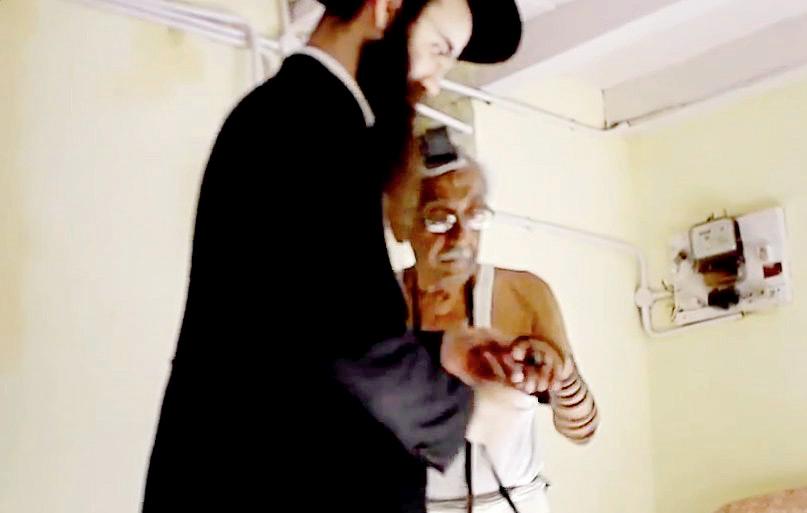
AB Salem’s son, Gamliel Salem has a Rabbi tie a Tefillin for him. This is a Judaic religious item worn by orthodox Jews. It contains verses from their holy book, the Torah
Q. Tell us about the experience of working on the project.
A. After a while, I realised that I can’t make a historical film if it wasn’t part of a seemingly unending series because there was just too much to be covered. Since the film was self-funded and a passion project, I couldn’t see a sequel or series happening at the time. So, of the 13 interviews I conducted across six cities in two countries (India and Israel), I stitched together a series of personal stories and experiences, with some historical content, and made this more about the Jewish experience in Cochin. I lived with members of the community even in Israel. By the end, I wanted to understand their lives and stories and this is exactly what I have presented in the film.
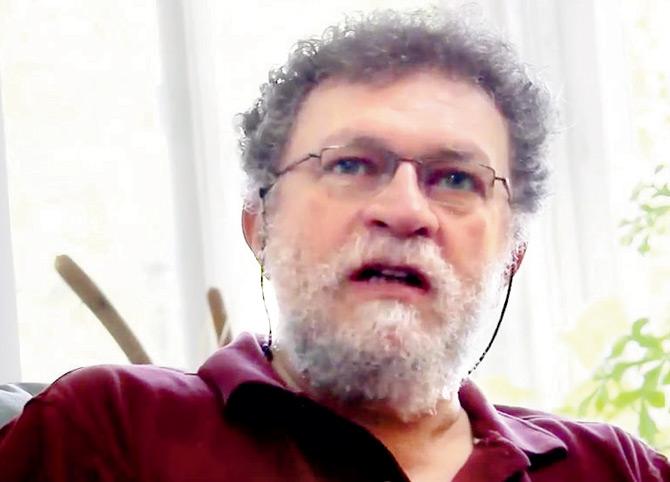 Saul Basil Koder: Grandson of SS Koder, a prominent Jewish businessman from Fort Cochin. His father, Naphtali Koder was a decorated officer with the Indian Navy and recipient of the Hind Ratan Award. Basil migrated to Israel in the 1970s.
Saul Basil Koder: Grandson of SS Koder, a prominent Jewish businessman from Fort Cochin. His father, Naphtali Koder was a decorated officer with the Indian Navy and recipient of the Hind Ratan Award. Basil migrated to Israel in the 1970s.
You mentioned there are 13 stories woven into the narrative. Could you share some intriguing bits?
The film is divided into five chapters and each chapter contains interviews with the 13 unique individuals and their stories. For example the first chapter deals with the persistence of memory, the second with the history, the third with the rise of Jewish Indian Nationalist AB Salem, the fourth covers the Cochin Aaliyah or the ascent/migration to Israel and the final chapter deals with hope and their lives in a new country, but also their struggle to preserve their Indian identity and the slow decline of the use of Malayalam as a language in Israel among the current generation of Cochin descendants.
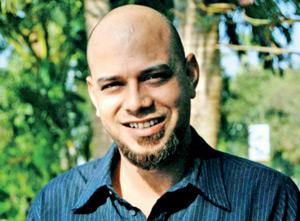
Rohan Sabharwal; Documentary filmmaker
The film begins on a very depressing note covering the slow death of a community integral to Indian society. There are only 36 Malabar Jews and six Paradesi Jews left. There were nine Paradesi Jews at the time of filming four years ago. That’s how fast it’s declining. But eventually the film ends on a positive note about their new lives in a new country they have made home. We also feature a father, Elias Josephai, the custodian of the Kadhvumbagham Synagogue in Ernakulam, who has been running from pillar to post to seek finance for the upkeep and maintenance of the Synagogues and cemeteries in Kerala from Jewish organisations the world over, albeit unsuccessfully, and his coming to terms with the fact that his daughter has already migrated and is living in Israel. He, on the other hand, will not leave India. It’s cruel that a Jewish cemetery in Mala will most likely be paved over to make way for new constructions and that there is little or nothing anyone is doing to stop it.
I also feature stories of individuals who long to return to India but are unable to, because they are either too old, or have no reason to return. On the other hand, Dr Essie Sassoon, a sweet lady that I had the privilege of interviewing, returns almost every year to meet family or for her college/university reunions. Dr Essie is also the author of a super collection of Kerala Jewish cuisine, called Spice and Kosher. We will be organising a Jewish spread at The Hive on the day of the screening with dishes and snacks based on her recipes.
 Subscribe today by clicking the link and stay updated with the latest news!" Click here!
Subscribe today by clicking the link and stay updated with the latest news!" Click here!







